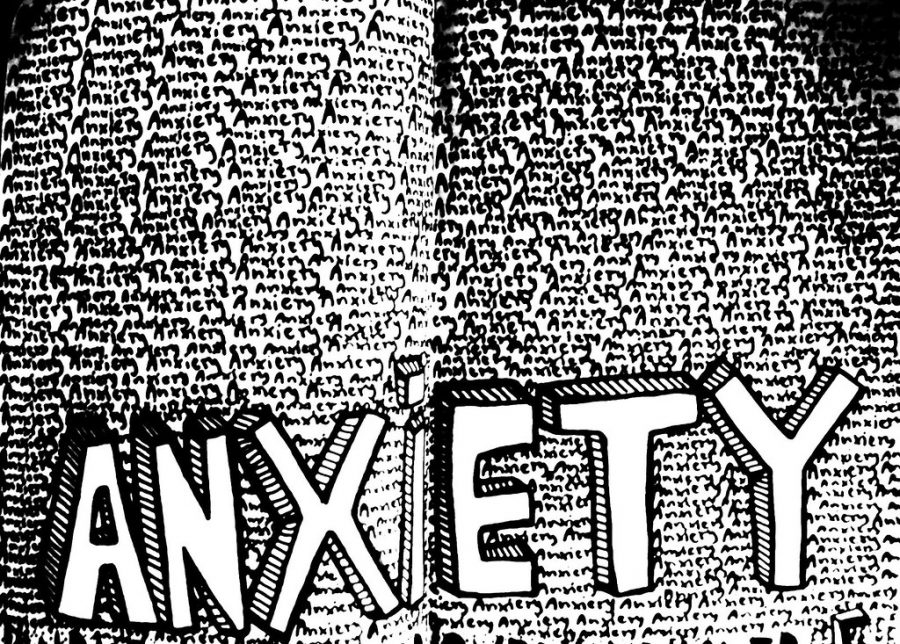The new college experience: anxiety
Oct 7, 2020
Entering college is an exciting and nerve-wracking rite of passage. No one knows quite what to expect, but they have vague visions of late-night studying, bad food and unforgettable memories.
What they do not expect is the intense anxiety that often comes with attending a university. According to the American College Health Association Fall 2018 National College Health Assessment, 63% of U.S. college students experienced intense anxiety that year. The ACHA also reports that 23% of students were diagnosed with anxiety or met with a professional to address their anxiety.
Compared to anxiety rates within the larger population, college rates are astounding. According to the Anxiety and Depression Association of America, anxiety affects 18.1% of the population — a staggering 44.9% difference.
According to Harvard Medical School, student anxiety levels are sharpest during the transition to college: “A recent study demonstrated that psychological distress among college students — that is, their levels of anxiety, depression and stress — rises steadily during the first semester of college and remains elevated throughout the second semester.”
To some, it may seem intuitive that anxiety levels rise during the transition to college. But why do we accept this as fact? Why do we allow high levels of anxiety to continue throughout the undergraduate experience?
Often, the stress of undergraduate studies is seen as an integral part of college. Academic pressure is surely a facet of chronic anxiety during college, but in my experience, this is not often in my top list of stressors.
I derive the most anxiety from expectations. Not only are college students expected to excel in academics, but we are also expected to be involved in extracurricular organizations, communicate regularly with family, have a job (in my case two), learn new skills, cook, exercise and respond to messages via phone, email, text, Slack, Presence, LinkedIn, GroupMe, Twitter, Facebook and Instagram.
Doesn’t all of that just feel overwhelming to read?
Now, add the new “Zoom anxiety” to the mix, and we’ve got a steaming pot of bad feelings. Not only is it an added burden to stare at yourself, overthink when to unmute your microphone and get irritated when that one student forgets to mute theirs, but I have found it harder to remember information I learn over Zoom.
THEN, add in the stress of living through a pandemic and watching the future of our country be tossed around like a hot potato.
There are so many expectations we consider, like those of our professors, bosses, parents and ourselves. Sometimes it becomes too much.
So, be gentle with yourself and with others. We are all trying to navigate this complex world and do our best.
Anxiety is real, and it is something we should all be talking about. It is okay to seek help. The John Carroll Counseling Center has many resources for students. Don’t hesitate to reach out to the Counseling Center or write to The Carroll News about your experience.













